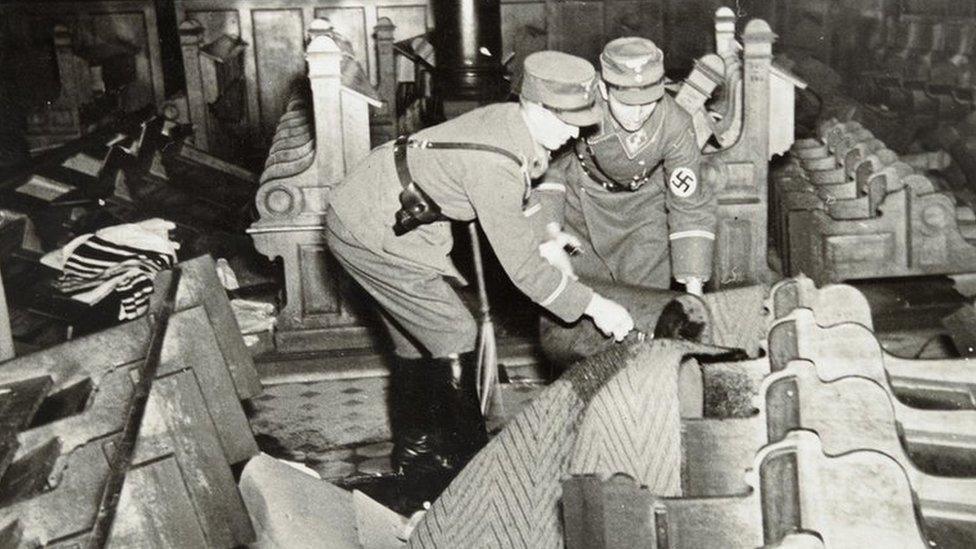Kristallnacht 85 years on: 'Why I will never forget it'
- Published
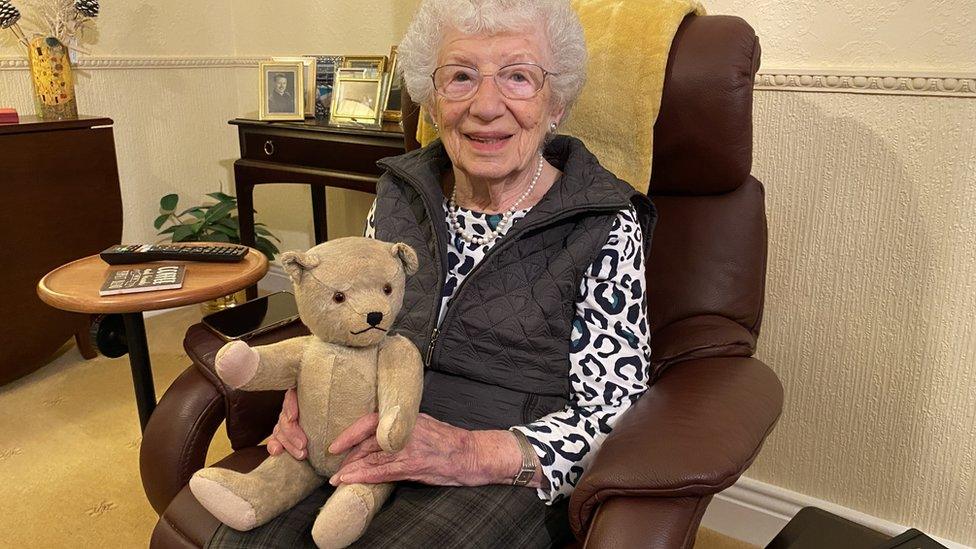
Gabriele Keenaghan with the teddy bear she brought on the Kindertransport from Vienna
A witness to the violent Nazi attacks carried out during Kristallnacht says the events of that night are still "seared" into her brain 85 years on.
On 9 November 1938, the Nazis began destroying synagogues and looting Jewish businesses in what became known as the night of broken glass.
Former Newcastle head teacher Gabriele Keenaghan was a schoolgirl in Vienna.
The 96-year-old now shares her experiences to help educate future generations.
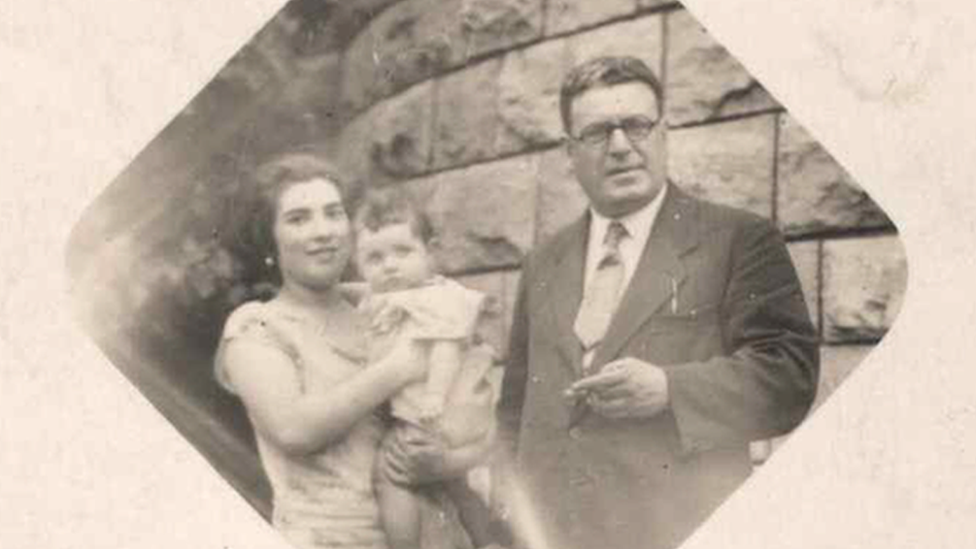
Gabriele Keenaghan as a baby with her mother and father
She was born Gabriele Weiss in 1926 and when her mother died she was sent to board at a local convent school. In March 1938 German troops marched into Austria (the Anschluss) and she was forced to go to a Jewish school instead.
"The nuns weren't allowed to teach any more, and the local authority came and sorted us out for schooling and at the end I was the only one standing on one side and someone came across and said I couldn't go to the same school as my friends because my father was a Jew.
"I had no idea my father was Jewish," she said
"The nuns were given a yellow star to put on to my coat and people called me names.
"I felt bewildered because there was a park opposite the convent where the nuns used to let us play, and I could not join in because there was a big sign saying 'Juden Verboten', which means Jews not allowed. I felt that very much, I still feel that today."
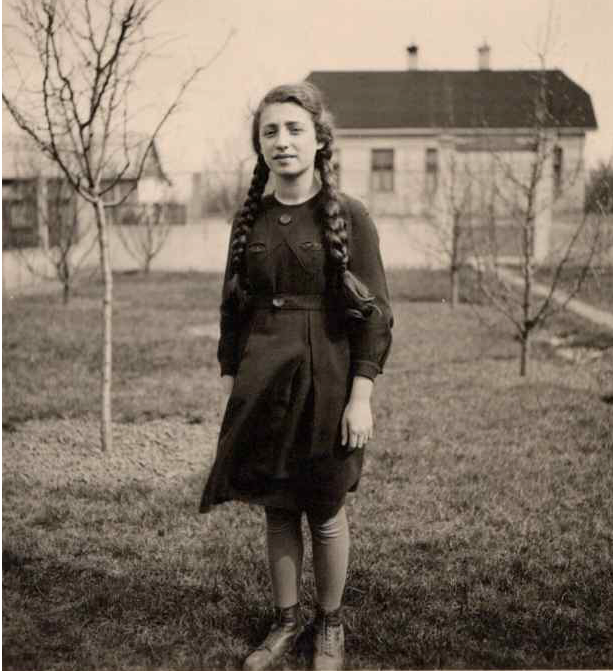
Gabriele Keenaghan just before she left for England in 1938
She said her memories of Kristallnacht, or the November Pogrom as it is also known, were "seared into my brain".
She said: "A great deal of crashing, people screaming, shots fired, it was very unpleasant.
"And we had shutters on the windows, which were never closed, but the nuns went and closed them because they were frightened.
"Why it's so vivid in my memory is because the next day was my 12th birthday, and my grandmother walked through havoc because there was broken glass everywhere and she was supposed to be meeting my father so they could take me out and he never turned up."
Mrs Keenaghan later discovered her father may have gone into hiding but was deported in 1941 and probably died in Auschwitz.
Her grandmother made arrangements for her to leave Austria on the Kindertransport, special trains taking children to the UK.
She married and had children and often returned to visit her grandmother, who survived the war, in Vienna.
But it was only after she retired from teaching that she finally began speaking about her experiences.
"I don't know why but I never spoke of it, but I was asked to do a talk at a school and it just snowballed," she said.
"I think it's important to let people know what happened but my story can give hope because I've been such a lucky person and I'm very grateful for the life I've had."
In 2019 she received a British Empire Medal for services to Holocaust education.

Follow BBC North East on Facebook, external, X (formerly Twitter), , externaland Instagram, external. Send your story ideas to northeastandcumbria@bbc.co.uk, external.
Related topics
- Published8 November 2023
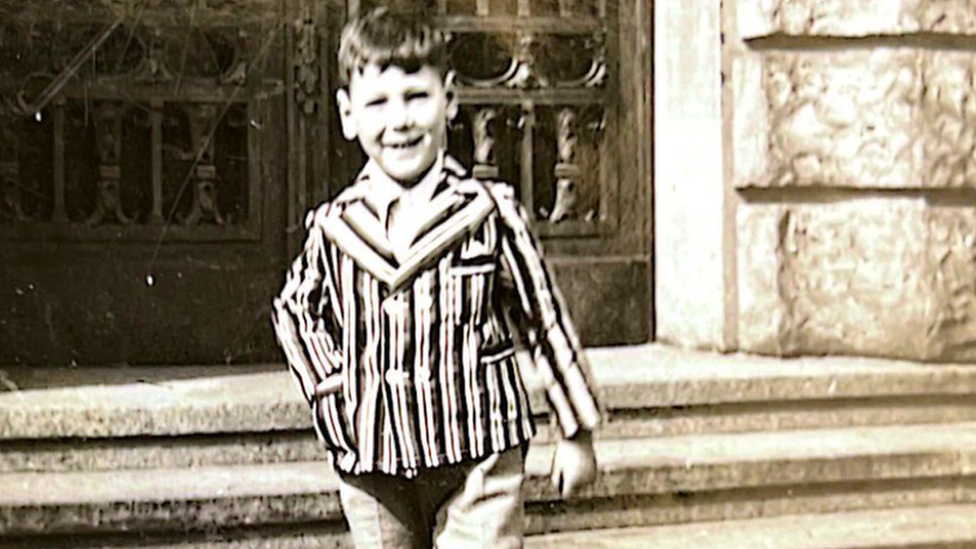
- Published7 November 2023
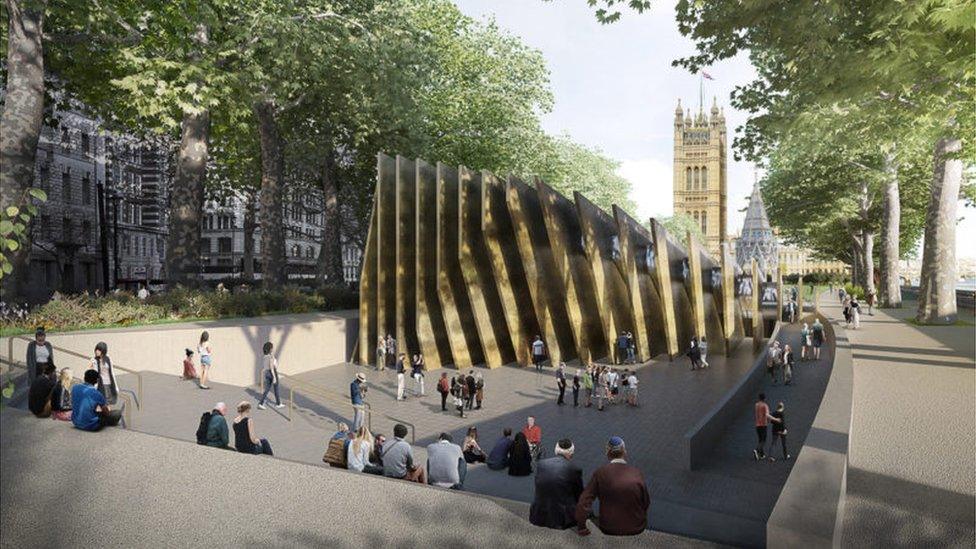
- Published10 November 2022
